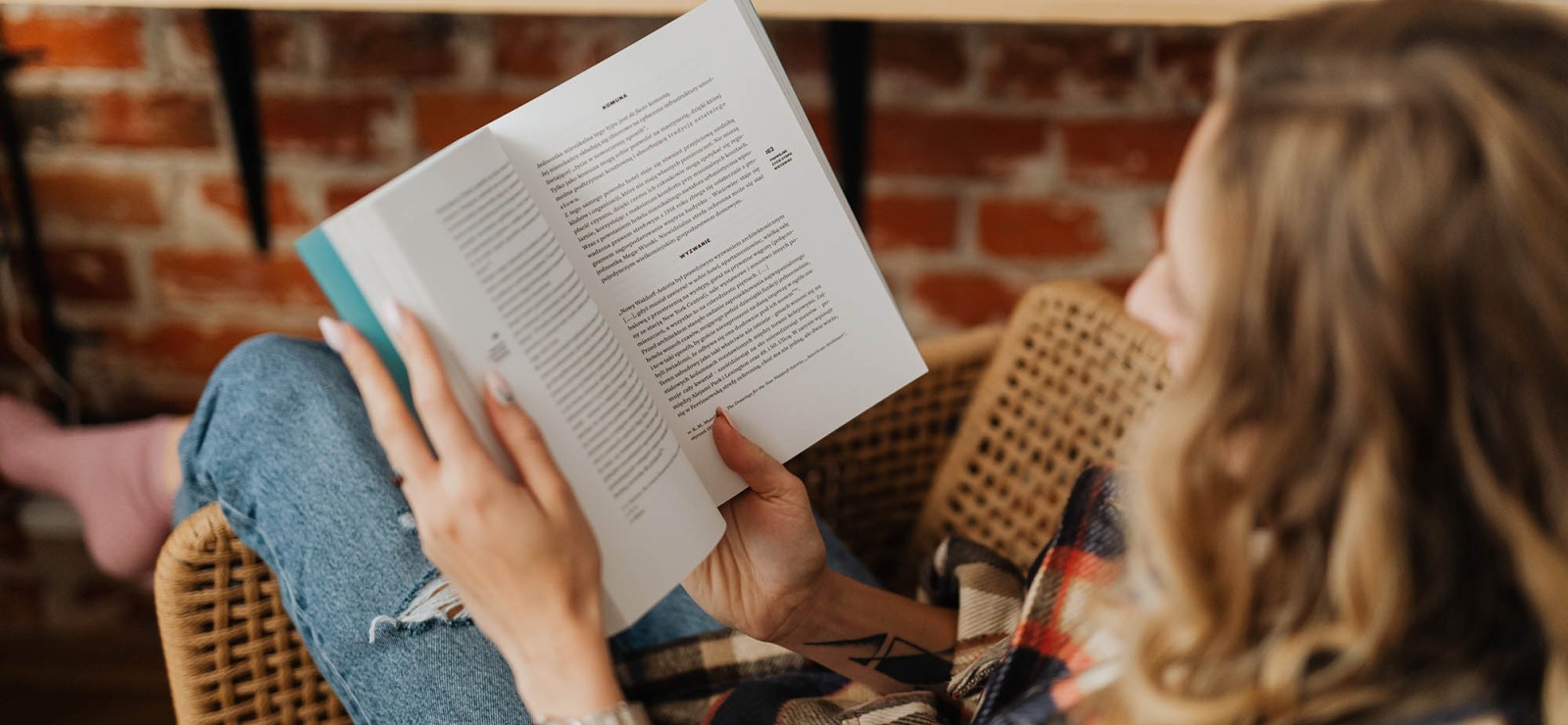The summer months are reading months for many people. From railway station novels to thrillers and classics, the pages turn and reading is a joy. But what makes a good book? Is there a formula for success? We ask a literary expert.
He can reread ‘Max Havelaar’ by Multatuli and ‘Ulysses’ by James Joyce over and over again: Lars Bernaerts is a professor of Dutch literature at Ghent University. His research focuses on modern and experimental literature and the contemporary novel.
His answer to our question is unambiguous: “There is no formula for success. But there are a number of factors that can lead to a good book.”
Suspense, caricature and humour
First and foremost, he points to literary quality. “To judge this, you have to look at textual elements such as style and story structure,” Lars explains. “The dynamics of suspense, curiosity and surprise are very important. A good book raises questions. Think of a detective story that raises issues about the possible culprit or motive. If those questions are cleverly answered, it can make a book successful.”
But that is a long way from making a book a classic. “There are other conditions besides literary quality that have to do with context. Take ‘The Lion of Flanders’ by Hendrik Conscience from 1838. You can call that a classic. The book responds to the reader’s expectations, desires and fears within the historical and ideological context in which it appears”. van de lezer, binnen de historische en ideologische context waarin het verschijnt.”
Lars also points to the recognisability of the characters. “The characters need to attract the reader. In many cases they also have a magnified side. Think of Batavus Droogstoppel from Multatuli’s Max Havelaar. There is something caricatural about this character, but at the same time he is very recognisable”.
The literary quality, the style and structure of the story, the ‘fit’ with the historical context and the characters: think of it as the necessary foundation. “The complexity of these elements determines whether a book can become a classic”.
“But,” he quickly adds, “you can’t reduce it to those elements alone. You cannot reduce a literary tour de force to a simple formula”.
Surprising railway novels
Is there no pattern? “With the classics, not really. But at the other end of the spectrum there are railway station novels, or lowbrow literature. These books are often written to a certain formula. They are based on a recognisable vision of love or social issues. And they follow a similar structure. This makes the stories very recognisable.”
“There’s nothing wrong with that,” he says. “Some people like that predictability. And sometimes railway novels can surprise you,” he adds. “It may seem easy to ‘fill’ such a template and write a book, but it is not. Writing a book remains an art that requires creativity and knowledge.”
A good book isn’t something you decide on your own
So far, the professor has focused mainly on factors related to the book and its context. But there are all sorts of things that “hang around” a book, such as the sociological context of the reader. “What makes a good book is different for everyone. Then we can talk about literary taste. This is sociologically shaped, even, according to some, sociologically determined”.
In other words, what you think is ‘good literature’ is not entirely up to you. Although you may think you are choosing a particular book autonomously, that choice is often predictable. “It has to do with your ‘profile’: your level of education, your age, your gender, your class... A sobering thought, but reality,” says Lars. “Amazon’s and bol.com’s algorithms are largely based on that.”
But that context is subject to changes in society that can quickly alter our view of what makes a good book. “Your reading preferences interact with developments in the world and in literature. Today, ‘we’ like to read authentic semi-autobiographical stories or books about pressing social issues, but we have a hard time with politically incorrect and morally suspect literature. Think of the sensitivities around gender, ethnicity and politics today, which were very different a few decades ago.”
Choosing a book and rebelling
Finally, Lars reflects on the individual. What are the individual’s reading habits and motivations? Does one read to escape or to learn? Are you reading by the pool on holiday or at your desk? “These habits and motives determine what you consider to be a good book,” he says.
With all these considerations in mind, Lars has another tip for your next visit to the library or (digital) bookshop. “If you become aware of your habits, motives and your own sociological and psychological context, you can rebel against it and take a book you wouldn’t normally choose at first sight. Those who love sugary-sweet verse should read an experimental poetry collection by Dominique De Groen. Those who are usually drawn to thrillers should try a surprisingly contrarian novel by Charlotte Mutsaers”.

Lars Bernaerts is professor of Dutch Literature at Ghent University. His current recommendation? Alkibiades by Ilja Leonard Pfeijffer.
Read also
Cruel summer? Not for this UGent’er
This summer it was hard to miss: at Ghent University you would soon be able to take a “Taylor Swift-class”. A storm of reactions blew up, the crackle could be heard all the way to the United States. In the eye of the storm: professor Elly McCausland and her elective course Literature (Taylor’s version). “It was a lot, but I’ve grown quite a thick skin.”
“Decolonisation MUST begin at the university”
Public debate about decolonisation has become extremely lively, especially in the aftermath of the Black Lives Matter protests. But the story is still far from over. What about reading lists? Museums? The way in which we teach?


